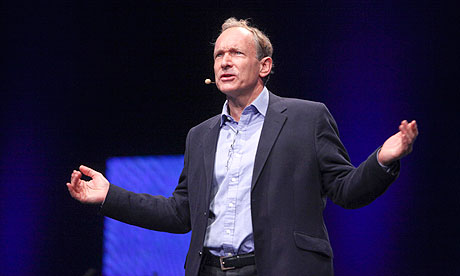Quite a contrast...
In the US a combination of mass (including street) protest and tech-corporate lobbying (including paying for ads) stymied an attempt, led by Hollywood/MPAA, to make it easy to isolate websites accused of copyright infringement.
Move on 3 years and the likes of Google have swiftly jumped on a new attempt by the MPAA to bring this in by the back door - this time they're focussed on one site, MovieTube, but succeeding in cutting it off would establish the principle.
Here in the UK we have no triple democratic lock (House, Senate, Supreme Court in the US), just a supine Lords to check the power of a Commons which the PM can operate as an "elective dictatorship" (Lord Hailsham's infamous phrase, then attacking a 1970s Labour government) when a single party has an overall majority.
Here, ISPs already block a wide range of websites which serve as search engines for Torrents (a means of linking with multiple users globally to download often copyrighted material).
PM Cameron, to the delight of the likes of the Mail (which loves media regulation or censorship ... just as long as its not of the Press), is pressing ahead with proposals to enforce age ratings on music videos online, to make every online adult to state whether they're opting in or out to adult material (always a difficult definition), and have already enforced a ban on a wide range of adult categories.
Against the backdrop of an overwhelmingly right-wing press, traditionally in favour of conservative, censorial campaigns (so long as it doesn't impact their businesses), there's been little protest here - at least, little that the public might hear about through the mainstream media.
Google, Facebook, Twitter and Yahoo have accused US film studios of attempting to resurrect the Stop Online Piracy Act (Sopa), which was defeated in Congress in 2012.
The US technology companies joined together to file a brief (pdf) with New York courts urging judges to strike down a preliminary injunction filed by six film studios of the Motion Picture Association of America (MPAA), which calls for a blockade of the alleged piracy site Movietube.
Sony, Universal, Warner Bros, Disney and Paramount are seeking to remove Movietube from the internet and stop internet companies linking to or providing services to the site, including search engines and social networks.
“Plaintiffs’ effort to bind the entire Internet to a sweeping preliminary injunction is impermissible. It violates basic principles of due process ... [and] ignores the Digital Millennium Copyright Act (DMCA), which specifically limits the injunctive relief that can be imposed on online service providers in copyright cases,” the technology companies write in the amicus brief.
They state that they do not condone the use of their services for copyright infringement and that they work with rights holders to tackle issues, but that the “proposed injunction is legally impermissible and would have serious consequences for the entire online community”.
